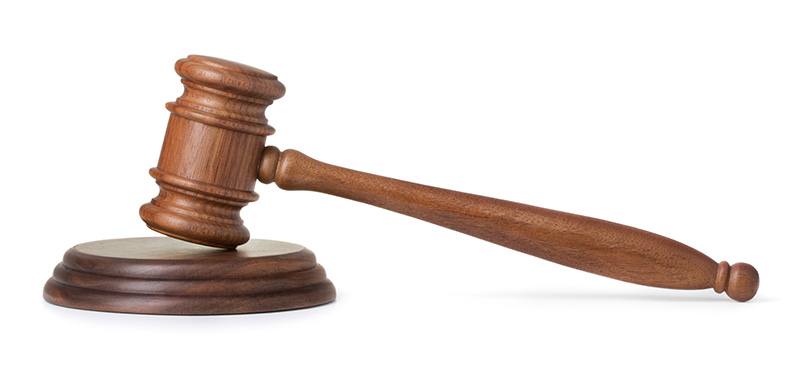A lot of people who follow the news are often mystified when they hear that one person was released after posting minimal bail for a particular crime while another was held without bail for something similar. Who makes these decisions? Is it all up to the judge to decide bail or are there other unseen forces at work driving the equation? Does the bail bonds agent have anything to do with setting the bail amount? And is there anything that can be done to change the amount once it’s been announced? These are all great questions we’re going to look at below.

Who Decides the Bail Amount?
Whether one is arrested and charged in Adams County, Broomfield County, Weld County or Denver they will encounter what’s known as a “bail schedule”. The bail schedule is set by the respective counties and lists the various amounts of bail that are recommended for different crimes. This helps streamline the bail bonding process and saves everyone time and hassle. However, the judge in a particular case has the right to ignore the bail schedule if he or she decides it is in the public interest to do so. This is one reason why you may see defendant A released after posting only minimal bail and defendant B held without bail for similar crimes. It’s because the judge has decided there is a compelling reason to release defendant A and an equally compelling reason to make sure defendant B is held until trial.
Other Factors That Influence the Amount of Bail
In most cases a judge will follow established guidelines during a bail hearing or arraignment and simply use the bail schedule to determine the bail amount. In other cases however, (such as those of defendant A and defendant B listed above), the judge will consider other factors when determining bail. Those factors include:
- The seriousness of the charges.
- The manner in which the crime was committed (was their malice aforethought?).
- The defendant’s criminal history, if any.
- The defendant’s personal ties to the community.
- Whether the defendant has family members that require their presence.
- The financial situation of the defendant.
So, if for example defendant A has no criminal record, is well respected in the community, has young children at home and doesn’t represent a flight risk he may be released on his own recognizance. Or bail may be set so low a bondsman isn’t needed. At the same time, if defendant B has a long history of violent crime, seems to have planned the crime he’s being charged with, has no ties to the community and is displaying contempt for the legal proceedings the judge may determine he represents a significant threat to the community and/or a significant flight risk and order him held without bail.
Does the Bail Bonds Agent Have Any Say in the Bail Amount?
The bail bonding agent is not an officer of the court and has no say in the amount of bail that is set. The role of the bail bonds agent is to help defendants secure their release while they await their day in court. The bondsman is therefore an independent entity acting on behalf of the defendant in a kind of quasi-fiduciary role. They don’t set bail amounts nor are they able to appeal a bail amount on behalf of their client.
Can the Bail Amount be Appealed?
The 8th Amendment to the US Constitution prohibits the government from imposing unreasonably high bail. That constitutional protection was later buttressed by the Bail Reform Act of 1966. As such if a defendant and/or their representative believes the amount of bail set is unreasonably high they may request a hearing during which they will appeal for a reduction in the bail amount.
The Bail Reduction Hearing
At the bail reduction hearing counsel for the defense may argue the bail set is so high that, for all intents and purposes, it represents a denial of bail. That should not happen unless there is compelling evidence that the accused represents a real and significant risk to the community or that they are a likely flight risk. Even though the court is compelled to take the defense argument into consideration they are not compelled to agree with it and may, at their discretion, deny the bail reduction request or deny bail bonding altogether. The only time the court would be in violation of the Constitution or the Bail Reform Act is if they set bail prohibitively high for no justifiable reason.
And make no mistake, the court must justify the reason for setting what may seem to some like an unreasonably high bail. The law states that if a defendant has appealed the bail amount set by the court the judge must demonstrate why that bail amount is an “indispensable” condition of the defendant’s release. If the court complies and sets out its rationale, it’s then up to the defendant, their loved ones and perhaps a bondsman to figure out how to raise the bail, lest the defendant molder in their cell while awaiting trial. Keep in mind too that just as a defendant can appeal for reduced bail the prosecution may appeal for an increase in bail. If the state determines the person is a particular flight risk or risk to the community they may request higher bail or request bail be denied altogether.
If you need to bail a loved one out of jail in Adams County, Broomfield County, Weld County or Denver call RR Bail Bonds at (720) 988-8304